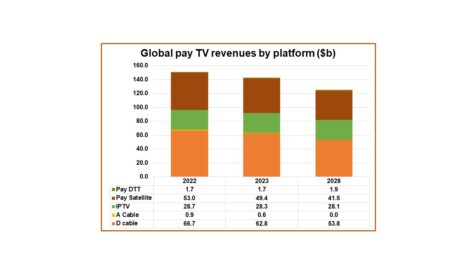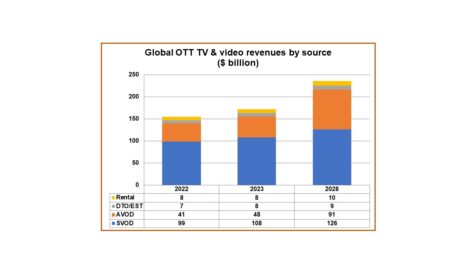
After more than 40 years of operation, DTVE is closing its doors and our website will no longer be updated daily. Thank you for all of your support.
One in four US households engage in piracy, costing billions in lost revenue
 Over a quarter of US broadband households engage in content piracy or account sharing, a new study has revealed.
Over a quarter of US broadband households engage in content piracy or account sharing, a new study has revealed.
The report from Parks Associates entitled 360 Deep Dive: Account Sharing and Digital Piracy also found that pay-TV and OTT piracy along with account sharing will lead to US$9.1 billion (€8.1 billion) in lost revenue this year, leading to US$12.5 billion (€11.1 billion) by 2024. This increase represents a growth rate of 38%, with 27% of US broadband households currently engaging in some form of piracy or account sharing. Just under a quarter (20%) of US broadband households using a piracy app, website or jailbroken device.
The most likely groups of people engage in piracy activity are male consumers under the age 35, and households with low annual incomes. These are also the demographics that most often subscribe to OTT services, representing a realistic marketing opportunity.
Brett Sappington, senior research director and principal analyst at Parks Associates said: “Piracy is a complex issue that cannot be addressed with a single solution or by targeting a single use case.
“Most pirates also subscribe to at least one OTT service. They are not simply thieves looking to steal content but are video enthusiasts who engage with many different services. OTT services could better reach these consumers through ad-based content, which also aligns with these users’ general belief that ‘movies/music should be given away for free.'”
The report also found that consumers viewing OTT video services for free without ads are 22% more likely than average broadband households to subscribe to OTT services, three times as likely to use ad-supported services, and twice as likely to use transactional online video services.
“Growing subscriber numbers and an increased number of services signal a very healthy OTT market, but more services and aggressively promoted content could incite more piracy over time,” Sappington said. “Consumers will hit an upper limit to spending eventually. When that happens, they will resort to pirate tactics to get the content that they want, particularly for sports and other content where trials are not available.”


